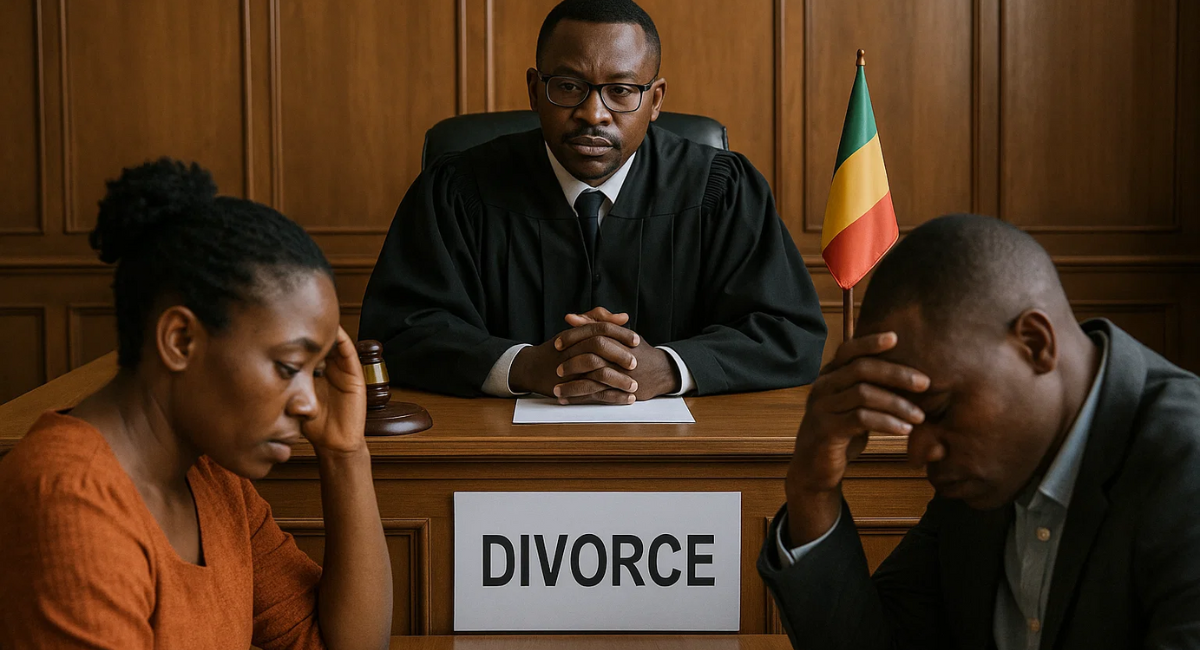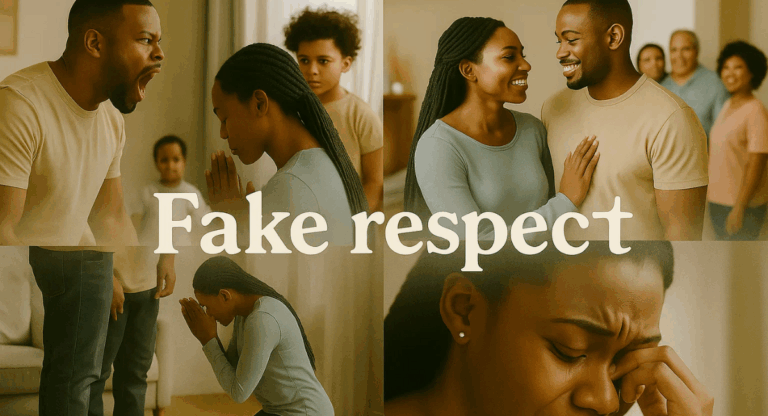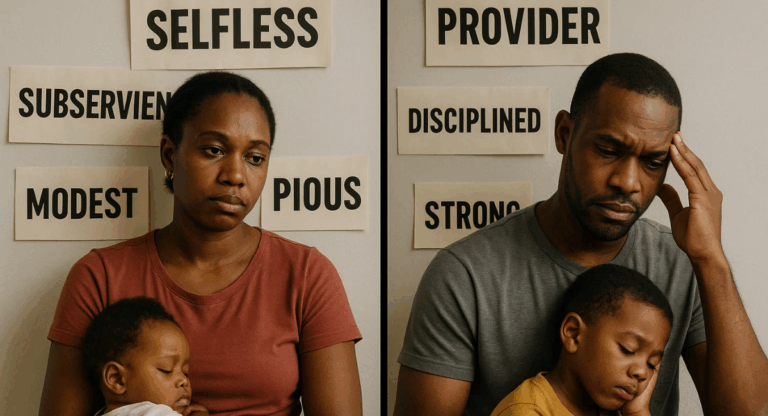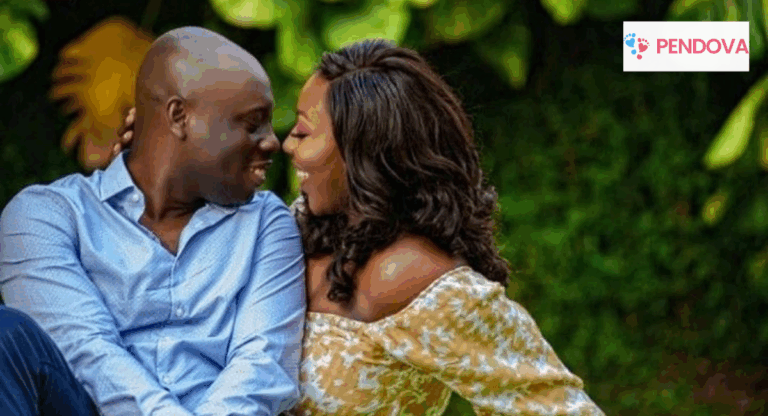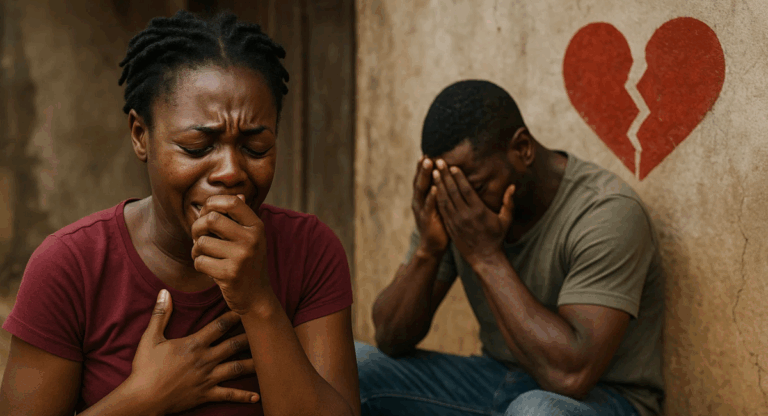After the Vows Break: Life After Divorce in Africa
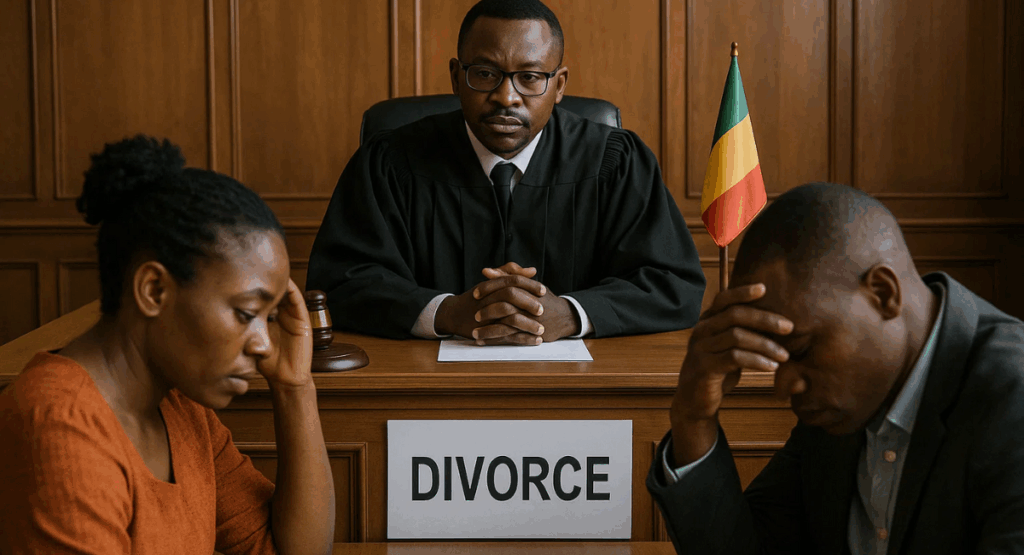
Divorce is not just a signature on paper. It’s a deep, personal loss, the death of a dream, the end of “forever,” and the beginning of a road no one prepares you for. In many African communities, it’s more than just heartbreak. It comes with eyes watching, lips whispering, and sometimes, a silence so loud it’s deafening.
A woman who walks away is seen as proud or disobedient. A man who leaves is called selfish or weak. But what people often miss is the quiet ache that follows, the long nights of questioning, the heavy days of pretending to be fine. Still, under all the judgment and pain, more and more Africans are slowly rebuilding. One small step at a time. They are learning that healing is not betrayal. It’s choosing to live again. And that journey, often silent, often unseen, is full of a kind of courage we rarely talk about.
Download Pendova on Google Playstore:

iOS Users can access Pendova app on web.pendova.com
1. A Stigma That Still Lingers
In many African homes, divorce still feels like a stain you can’t wash off. It’s treated less like a difficult decision and more like a shameful failure. People care more about how the breakup looks than why it happened. Even when a woman walks away to save her life, she is often blamed. Her voice gets lost under words like “you should have endured.”
The label “divorced” becomes something she carries everywhere, at family functions, in church, even at work. Some people won’t even say it, but you can feel it in the way they treat you. They just treat her differently. The judgment is quiet but heavy. And for many, it doesn’t go away for years.
2. Starting Over as a Woman
For many African women, life after divorce is like waking up with nothing and having to start over. Some walk away with nothing. No money, no place to stay, and no one to turn to. Others have to fight to see their children. And the very people who once celebrated their wedding suddenly turn cold.
But African women are rising. Slowly, and sometimes quietly. Some start small market stalls, others return to school. Some find strength in women’s groups, therapy circles, or prayer meetings. They rebuild not just their homes, but their sense of self. With time, they begin to tell a new story, one where they are no longer just someone’s ex-wife, but someone finding her way back to life.
3. The Fatherhood Struggle
Divorce affects men too, but the pain often hides behind silence. Society may not judge them as harshly, but it doesn’t give them room to feel either. Many African men grow up believing they have to be strong all the time. So when the marriage ends, they stay quiet. They carry the heartbreak alone. They just keep busy, drink more, or disappear into work.
Some try to stay present in their children’s lives but struggle with court battles or distance. Others slowly lose touch, even when they didn’t want to. What hurts most is that they are rarely taught how to process loss. For them, healing means learning that it’s okay to feel. That strength also means softness. And just because the marriage ended doesn’t mean the fatherhood should.
4. Children in the Middle
The ones who get hurt the most, yet speak the least, are often the children. They are told nothing but expected to adjust to everything. One weekend with Dad. One week with mum. One home has one set of rules. The other has another. And no one explains why.
In many African homes, children are not included in these conversations. Adults think silence protects them, but kids are not blind. They see the tears. They hear the arguments. They feel the tension. And when no one explains, they create their own stories, some of which they carry for life. Supporting children through divorce means not just feeding and schooling them, but also helping them heal.
5. Community Judgment and Isolation
In close African communities, everyone knows everything. News of a divorce spreads faster than the truth behind it. The market women whisper. Church friends pull away. Some people stop inviting you to weddings. Some people won’t say a word, but their eyes speak pity. Others just don’t trust you anymore.
This kind of social exile hurts in ways most don’t understand. It can lead to loneliness, anxiety, and a fear of ever trying to love again. But slowly, that’s changing. More people are choosing peace over trying to meet public expectations. They are learning that survival is not a weakness, and isolation does not have to be a life sentence.
6. Religious and Cultural Expectations
In many African homes, faith is not just personal. It shapes daily life, decisions, and even how people view marriage. But when it comes to divorce, religion and culture often leave little room for compassion. Many churches preach patience, even in harmful situations. Divorce might be allowed, but it is rarely supported. Some churches won’t even let a divorced person marry again.
In traditional settings, women are often sent back to their husbands’ homes, told to “fix things”, even if those things include violence or betrayal. These expectations make people feel torn. They want to respect their faith, but they also want to survive. The emotional weight of navigating these beliefs can feel impossible. But many are learning to find their spiritual path, one where faith and freedom can co-exist.
7. Financial Fallout
When a marriage ends, it’s not just the love that breaks. The money, the house, and sometimes even the future dreams fall apart. In many cases, women are left with nothing. Especially when the marriage wasn’t legally registered or when customary law offers little protection.
Some men also lose a lot, land, homes, or are weighed down by legal fees. In many African countries, the legal system doesn’t make things easier. t takes time, drains money, and often feels deeply unfair. Financial recovery can take years. And without support, some never bounce back fully. But the ability to rebuild slowly, even from very little, is something that more people are starting to talk about openly.
8. Finding Love Again
Falling in love again after divorce is both beautiful and terrifying. There is fear. Fear of getting hurt again. Fear of making the same mistakes. Fear of not being enough. Society also adds pressure. A woman who dates again is called desperate. A man who stays alone is seen as broken.
But love does return. Sometimes in a slow friendship. Sometimes in an unexpected meeting. It often comes with more maturity, more intention, and more honesty. And for many, the second time around feels safer, more real. Not because the past is forgotten, but because they now know what kind of love is worth keeping.
9. Legal Systems and Gaps
Divorce laws across Africa are often inconsistent and difficult to navigate. In some countries, it’s a clear process. In others, it’s confusing, expensive, and often unfair. Customary law and civil law don’t always agree, which causes delays and complications.
Women are usually the ones who suffer most. Many don’t know their legal rights. Others can’t afford a good lawyer. Some are intimidated by the system itself. For divorce to be fair, legal structures need to be clearer, kinder, and easier to access. Everyone deserves a chance to move on with dignity.
10. The Quiet Strength of Survivors
Across Africa, people who have walked through divorce are no longer hiding. They are speaking out, writing their truths, forming communities, and finding healing in unexpected places. They are parenting with love, building new careers, and rediscovering joy.
Life after divorce is not the end. It’s the beginning of something different; not always easier, but sometimes more honest. It’s a journey back to self. A path that teaches people to value their peace, their worth, and their own story. And that quiet strength? It deserves to be seen.
Final Thoughts
In Africa, divorce is layered. It touches culture, religion, gender roles, and even silence. But behind every divorce is a person. A human being who tried, who hoped, and who is now trying again; not for love alone, but for life. We need to stop seeing divorce as shameful. Not every broken marriage is a failure. Not every divorced person is lost. Sometimes the kindest thing you can do for yourself is to let go and walk away.
Further, When the vows break, life doesn’t stop. It shifts. It reshapes. It makes room for something new. Whether someone finds love again, stays single, raises kids alone, or simply heals quietly, their journey matters. Because the most powerful love story may not be the one you had with someone else, but the one you learn to have with yourself.
Follow our Social Medias:

